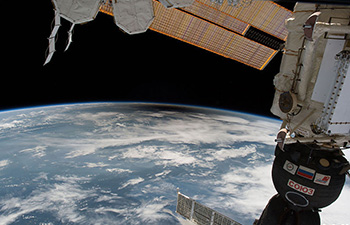CHICAGO, Aug. 23 (Xinhua) -- Researchers at the University of Michigan (UM) recently found that activating the amygdala portion of the brain can intensify one's motivation to consume cocaine far beyond ordinary drug levels.
"This would suggest that the amygdala plays a key role in drug addiction," said Shelley Warlow, a UM psychology graduate student and the study's lead author.
Researchers implanted rats with a catheter that allowed them to earn doses of cocaine by poking their noses into small holes in the wall.
Whenever rats poke their nose into one particular hole to earn intravenous cocaine, a laser light would also painlessly activate the neurons in the central amygdala at the same time.
Poking their nose into a different hole earned identical cocaine, but never activated the amygdala.
When being able to freely choose between those two cocaine rewards, rats focused only on the port that earned cocaine together with amygdala-activating laser, consumed much more cocaine than rats without amygdala activation, and avidly nibbled around the laser-cocaine hole as though seeking more.
Rats with amygdala activation were also willing to work almost three times harder for the cocaine, the study indicated.
Rats appeared to be indifferent to amygdala laser activation. The amygdala activation only intensified motivation when cocaine was present.
By contrast, when the researchers temporarily inactivated the amygdala using a painless drug infusion, rats completely stopped responding for cocaine altogether.
"Understanding brain areas and the mechanisms involved in this intense motivation will be important in developing treatments for addiction and other compulsive disorders," Warlow said.

















